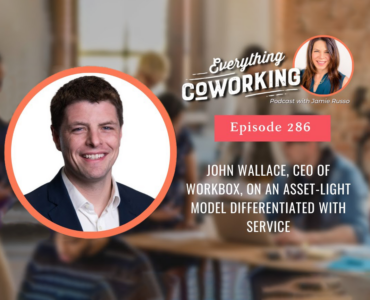Top 5 Benefits of Flexible Office Spaces for Startups in 2021

While there are successful startups that have originated around the founder’s kitchen table or out of their garage, most businesses are best established in an environment with plenty of resources, space, and flexibility to get them up and running as quickly as possible.
For a startup in search of their initial location, flexible office space can provide substantial benefits. Flexible office spaces give a new business owner many options for location, size, and other amenities—with a wide range of leasing terms from monthly memberships to long-term contracts.
Find the top five ways startups can benefit from flexible office space below.
5 Reasons to Choose Flexible Office Spaces
1. Plan for Uncertainty
As a startup, there’s no way to predict where you’ll be in six months, let alone three years. When you’re just getting started, your business doesn’t need to be bound to a long-term contract. Flexible office space allows you to increase, decrease, or even move on from your space—with little notice—to meet your changing business needs.
Having a flexible work space also gives you the opportunity to add extra desks when you need them, or scale back when fewer team members are commuting to the office. The ability to streamline your office space by only paying for the number of desks you require at the moment can be a valuable contributor to your company’s success.
When you rent flexible office space from a company with multiple locations, often you have the option to work from other offices within their network. For instance, Workbox offers a floating membership that allows members to work from any of their locations during regular business hours.
This agility can be helpful for professionals who need to keep a space near key clients, or for a startup to ‘test the market’ of a new location with little risk. With the larger chains offering offices in most major cities, you’ll always have a quiet spot to work while traveling, as well.
2. Flexible Lease Terms
As a startup, committing to office space can be difficult as your space requirements—as well as your financial position—are likely to change over the next few years. A standard office lease is 5-7 years, which can be a huge obligation for a new venture. Purchasing office space comes with larger upfront costs, which isn’t always an option when you’re just starting out.
Startups benefit from shorter lease terms to establish themselves in the market. They often don’t need much space either, in a market where office sizes can start at 1,000+ square feet.
Traditional building landlords prefer longer term leases to keep a stable rental base, and may not have smaller spaces available. They also prefer to work with more established companies, who are less likely to default on their lease.
[Related: 3 Game-Changing Reasons for Coworking Success]
Fortunately, the options for flexible, short-term office space are more abundant than ever, with customizable layouts and extremely flexible terms. Flexible office space offers the professional appeal of a traditional office while ditching the long-term commitment of a standard lease.
Flexible leasing terms can range from monthly memberships to several year-long contracts, offering founders the freedom and flexibility to grow the business at their own pace.
3. Move in Quickly
Typically, it takes several months to decide on a space, negotiate the lease terms, and complete office improvements. You just don’t have that kind of time or money when you’re just starting out.
Flexible office space allows you to move in quickly and efficiently, with little downtime when transitioning into your new location. You can get to work immediately. The furniture, décor, equipment, and other amenities are all provided. You won’t have to worry about installing internet and phone lines, booking a cleaning service, or hiring a receptionist—many flexible offices offer these services built in to your monthly rate.
Renting flexible office space will save you the stress of setting up an office and lets you focus on your business instead.
4. Change Your Office Layout to Suit Your Changing Needs
Whether you’re a team of a few, or a growing company with an increasing headcount, most startups can benefit from an adaptable work environment. Office space flexibility isn’t just about the office—it’s also flexibility in how you use it.
Flexible offices are designed to foster creativity and encourage collaboration, while still offering quiet zones and individual spaces. With a diverse range of workspace types, team members utilize the type of space they need each day, for each project.
The COVID-19 pandemic has positioned flexible office spaces as an efficient way to meet a company’s ever-changing team safety requirements. Equipped with ample electric and phone outlets, plus a strong wireless data network throughout, these spaces can easily adapt to social distancing guidelines by reconfiguring desk layouts with minimal disruption to business operations.
5. Network with Other Entrepreneurs
Flexible office spaces are all about helping startup teams thrive, surrounding your coworkers and you with plenty of creative and driven professionals to spark ideas. Startup founders can benefit from networking with like-minded entrepreneurs, forging valuable connections to help your business grow.
A nurturing environment for launching a new venture, flexible office spaces also schedule special events to promote a sense of community among its tenants. From meetup events to guest speakers, your team can take advantage of perks that will expand their professional network.
Some coworking spaces offer specific programs designed to help early-stage startups to scale quickly. Acceptance into these incubator-type environments often includes resources to help members accelerate their growth, such as strategic services, mentorship, and network sharing among other members. Workbox’s Plus Membership even includes access to their deep network of angel investors, VCs, and specialty lenders.
A Smart Choice for Startups
Flexible work spaces combine the professionalism of an office with the energy of your favorite coffee shop, while offering creative work spaces and meeting rooms with convenient amenities.
Startups find flexible office spaces an affordable alternative to their garage. Many founders find that they excel in a dedicated office space and helps them connect with clients, staff, and other entrepreneurs. The ability to easily increase or decrease square footage when your business fluctuates will help to save on overhead costs, and allow you to experiment with the layout that works best for your team.
Want more about this topic? Read this next: Desk Space Rental vs Office Space Rental for Early Stage Startups




